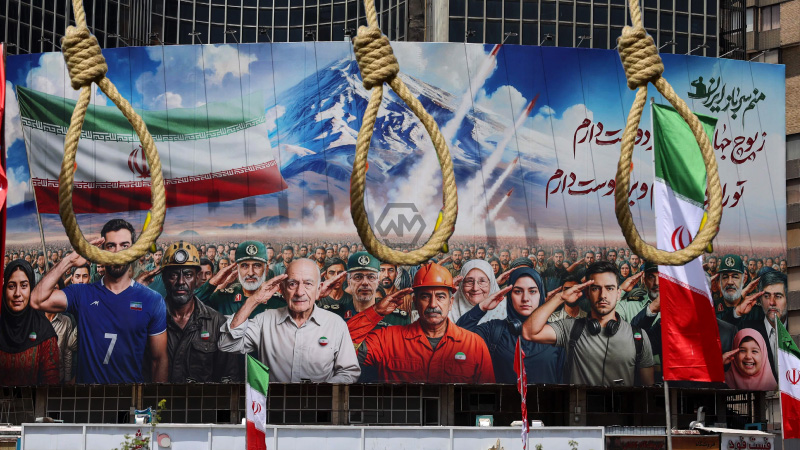- Iran hanged three men accused of espionage and collaborating with Israel’s Mossad.
- The executions followed a ceasefire that ended nearly two weeks of open hostilities.
- Over 700 individuals have been arrested in Iran for suspected ties to Israel since the conflict began.
In a high-profile escalation of its internal security operations, Iran executed three men on June 25, 2025, for alleged collaboration with Israel’s Mossad intelligence agency.
According to Iranian state-linked media, these executions are part of a broader wave of arrests and swift trials aimed at dismantling foreign intelligence networks.
Tehran Executes Three Over Mossad Ties as 700 Arrests Signal Sweeping Security Offensive
The Iranian judiciary’s Mizan news agency released images of the three men in blue prison uniforms before their execution, emphasizing the state’s transparency in handling the case. However, no trial footage or independent confirmation of evidence has been presented publicly, raising concerns from international watchdogs regarding the fairness of the proceedings.
Human rights organizations, including Amnesty International, have consistently ranked Iran among the leading countries in state executions. Critics argue that these punishments often lack due process and are disproportionately applied during politically tense periods. Iran’s use of the death penalty for alleged espionage is seen as a tactic to deter collaboration with foreign entities.
The recent Iran-Israel war, which began on June 13, marked one of the most direct military confrontations between the two adversaries. Though the conflict was short-lived, ending in a ceasefire just under two weeks later, its aftermath has seen intensified domestic crackdowns within Iran. Observers note that these events suggest a shift from covert “shadow war” tactics to overt reprisals.
Analysts believe these executions serve both a judicial and symbolic purpose, intended to demonstrate Tehran’s resilience and unwillingness to tolerate perceived foreign infiltration. While details remain scarce about the alleged assassination facilitated by the executed men, the regime’s message is clear: Iran will respond decisively to espionage, especially during wartime.
As tensions between Iran and Israel simmer beneath a fragile ceasefire, Tehran’s swift executions and mass arrests signal a hardened stance against any perceived betrayal within its borders.
“The first casualty when war comes is truth.” — U.S. Senator Hiram Johnson.



